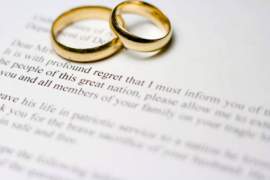
Intentional Discrimination
Under Title VII of the Civil Rights Act of 1964, Intentional Discrimination is classified as the obstruction or deliberate discrimination of a particular group of individuals from equal employment at a particular position. The charge of Intentional Discrimination is prohibited in public/private employment for those qualifications not deemed "mission critical" under the standards set by the Equal Employment Opportunity Commission. Intentional Discrimination must present a reasonable likelihood of targeting a specific group for discrimination by setting an unfair standard for employment; standards which inadvertently prohibit an individual's employment may not qualify as Intentional Discrimination.
The practice of Intentional Discrimination in the workplace is prohibited under Title VII of the Civil Rights Act of 1964. The EEOC enforces all laws and provides guidance to state and local legal bodies with regard to making rulings and fact finding procedures that affect employment discrimination cases. In cases where the employer can be found to have acted with a reasonable degree of intent - meaning that he or she set forth qualifications or discriminating factors which barred a party from fair access to employment - the EEOC may refer the action to the appropriate legal authority for remedy and review. It is important to note that the EEOC is not a law enforcement operative or law enforcement body. Likewise, the EEOC is not a fact-finding court - it is a commission brought forth by congressional decree and remains operational under the discretion and request of congress.
Intentional discrimination is perhaps the most targeted form of workplace discrimination under Title VII, as it involves direct bigotry on the employers behalf. For example, the New York City Police Department once enforced a height requirement which many female officers could not meet. While activists and revisionists claimed to a certain extent that the height requirement was a subtle form of deliberately restricting the amount of female officers in the NYPD, the NYPD was not found guilty of intentional discrimination. However, a major area of revision under the EEOC in the practice of Intentional Discrimination in the workplace is the assured compliance with removal of personal demographic information on job applications to reduce and restrict the possibilities of Intentional Discrimination.

















